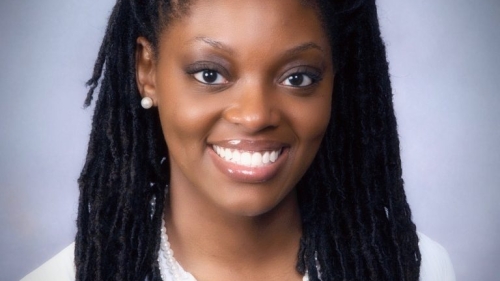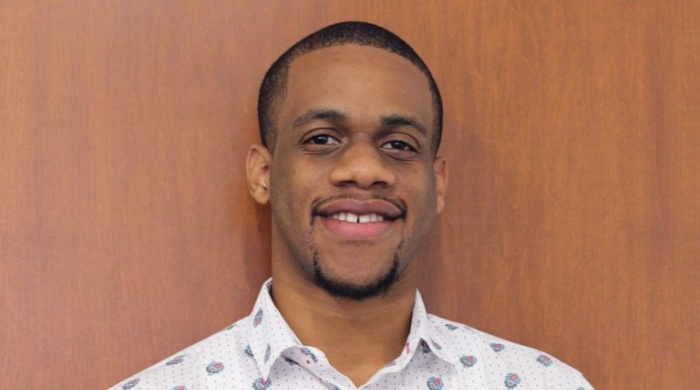
Letisha Smith
Letisha Smith (MS '17) is a graduate of NYU Steinhardt's program in applied statistics for social science research. An Atlanta, Georgia native, she earned a BA from from Emory University, was awarded an Urban Education Fellowship at Match Charter High School in Boston, and then took a job as a behavioral specialist at Alliance Inclusion and Prevention. She currently works at the Institute for Innovations in Medical Education at NYU Langone Hospital.
In September, Letisha received the Award for Statistical Excellence in Early-Career Writing from the Royal Statistical Society. The prestigious honor celebrates early career statisticians who can demonstrate effective communication skills while explaining their work to an audience of non-experts. We spoke to her about how she applies statistics to her life and work.
What is a day like as a Senior Database Analyst at NYU's School of Medicine?
As a Senior Database Analyst, a lot of my time is spent analyzing survey feedback that medical students receive on their quality of patient care. My preferred statistical programming language is R, which I use on a daily basis for cleaning, visualizing, and reporting data.
Can you talk about how you fell in love with data? With machine learning?
Before grad school, I spent a few years working in Boston's education sector, which is rich with organizations using evidence based interventions to improve academic outcomes for students attending underserved schools. My exposure to reform efforts in charter, turnaround, and traditional public school environments allowed me to recognize that the most effective policies were backed by data. Therefore, I decided to get my master's degree in applied statistics at NYU Steinhardt because of the program's focus on social science research.
You have written on the very practical application of data in cooking, for which you won the 2018 Award for Statistical Excellence in Early-Career Writing. How do you apply statistics to adopt healthier eating habits?
I am interested in the use of light touch interventions to influence human behavior; the way that recommendations can be used to nudge people towards making better decisions, which is how I initially conceived of my project. When faced with dietary restrictions, the focus has traditionally been on what not to eat. However by grouping together recipes that share similar ingredients, I hope to recommended meals that people can make at home by using ingredients already available. If someone wants to cook a dish, then my objective is to suggest other dishes that use similar ingredients without the cook having to pre-specify foods to use in future meals. Ideally this would allow one to maximize the number of meals made with a minimal amount of ingredients--potentially reducing food waste along the way.
Do you think that statisticians look at the world differently?
I do not think that statisticians inherently have a different view of the world; however, I do believe that statisticians desire to use data to contextualize what they see.
What advice would you give a student who is struggling to learn statistics?
Take a step back and ask yourself what questions are you most interested in solving and how learning statistics can aid in that process. In a classroom, the teacher may not be able to tailor a lesson toward your specific question, but strive to make these connections and ask for clarification when needed.
Also accept that you may not fully understand a concept the first time that it is presented, so be patient, acute to the precise misunderstandings you have, and willing to seek out extra resources that provide more detailed explanations.
Related Articles
Lifting As You Climb: An Interview with Jemar Bather (MS ’18), Applied Statistics
Jemar Bather is a biostatistics doctoral student and a HIV/AIDS Training Grant Fellow at the Harvard T.H. Chan School of Public Health. After earning a master’s degree from NYU Steinhardt’s Program in Applied Statistics for Social Science Research, he served as a research assistant in the Department of Biostatistics at the NYU College of Global Public Health, where he built statistical models to address health disparities in breast cancer, obesity, health literacy, and patient decision-making.

